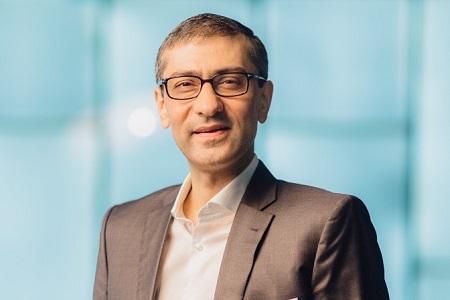Suri was first appointed to the Broadband Commission in 2016 and he has co-chaired the Digitalisation Scorecard group and also the Digital Health group.
 Rajeev Suri, CEO of Inmarsat, has been reappointed as Commissioner to the UN Broadband Commission for Sustainable Development. Founded in 2010 by the International Telecommunication Union (ITU) and UNESCO, the Commission was established to bring the goal of universal broadband connectivity to the forefront of policy discussions.
Rajeev Suri, CEO of Inmarsat, has been reappointed as Commissioner to the UN Broadband Commission for Sustainable Development. Founded in 2010 by the International Telecommunication Union (ITU) and UNESCO, the Commission was established to bring the goal of universal broadband connectivity to the forefront of policy discussions.
The commission examines and advises on what steps need to be taken to shore-up digital networks, strengthen capacity at critical connectivity points like hospitals and transport hubs, and boost digital access and inclusivity. The work is particularly relevant in light of the Covid-19 pandemic and the increasing frequency of natural disasters.
Suri was first appointed to the Broadband Commission in 2016. During his time in the role, he has co-chaired the Digitalisation Scorecard group and also the Digital Health group. With his reappointment, Suri will continue to focus on ways to improve connectivity globally, especially in more remote and underserved areas, as well as through the use of technologies including satellite communications, which can help deliver services to these hard-to-reach locations.
Commenting on his reappointment, Rajeev Suri, CEO of Inmarsat, said: Covid-19 has highlighted the need for resilient connectivity and affordable access, wherever you live and work. We urgently need to extend broadband into every rural area, every underserved community and every global trade route. Digital inequality has to be addressed and that includes using satellite communications to overcome it. Inmarsat has been connecting people for 40 years and I hope our work, alongside others on the Broadband Commission can help tackle this challenge.
The UN Broadband Commissions Annual Spring Meeting is being held today and will focus on building an inclusive post-Covid digital future. It will consider the challenges of increasing connectivity and tackling digital inequality given that 49% of the worlds population is still unconnected.
















































































